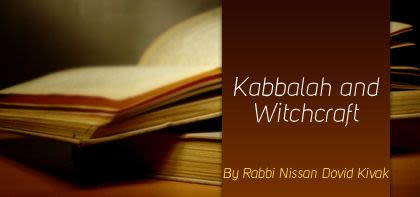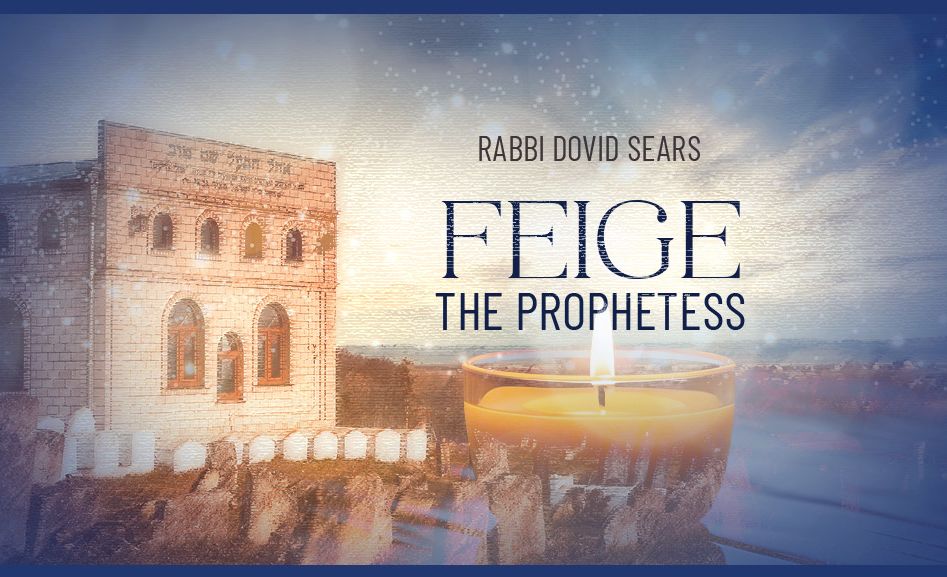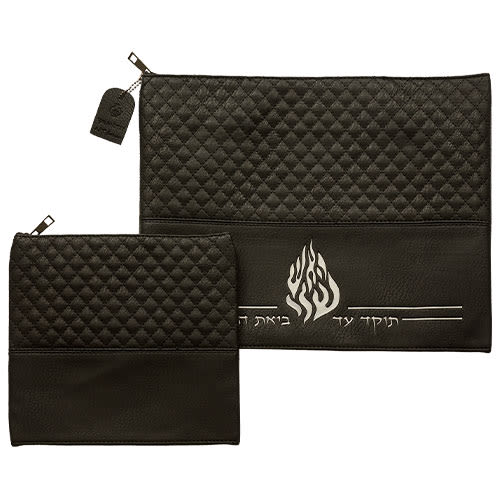
Kabbalah and Witchcraft
Do we learn Kabbala and pray with “kavanos”, the inner intent and meanings of Hashem’s Name, or not? What did Rebbe Nachman want us to do?

Translated by Aaron Yoseph
The Rebbe speaks in Likutei Moharan I:120 about learning kabbalah and praying with kavonot (intentions). Some people here want me to tell them that they’re allowed to learn kabbalah and daven with kavonot, and that this is what the Rebbe wanted. Others want me to say that the Rebbe said that it’s forbidden to learn kabbalah and pray with kavonot, the inner intent and meanings of Hashem’s Name. Whom should I please? Although most people have already made their own minds up about this, let’s try to see what the Rebbe really said about this.
This person came to the Rebbe and the Rebbe understood that he was being machaven, he was intending to achieve the unifications described by the Arizal during his prayers. The Rebbe told him to stop doing this. Even though the Rebbe himself had told him to learn the kabbalah books, he sensed that he wasn’t doing the kavonot with the correct intention, so he told him to stop. This man felt that he could achieve things with his kavonot all by himself, without connection to Tzaddikim. This was his mistake. The Rebbe told him instead to focus his concentration on the simple meaning of the words of his prayers.
To concentrate on the simple meaning – this is what brings our hearts into what we say. “Baruch Ata…” Oy, if people would only understand the simple meaning of this and say it with feeling! There is a King. You, Hashem, are the source of all blessings. I need Your blessings. We can come to such closeness to Hashem just by saying these words simply. If we would really feel the meaning of the simplest bracha, we would faint from ecstasy. Hashem is our G-d, and He is the King of the entire universe.
We say Ashrei three times a day. Ah! “Great is Hashem… Open Your hands… – what joy this is! Saying these words with our hearts draws us out from all feelings of distance from Hashem. We speak directly to Him, and our hearts connect to this. Shehakol – we can say brachot with such kavana – to the point where we don’t taste the food or drink, only the Shehakol.
Ata nosein l’adam daas– You give a man daat, true awareness and understanding. I need that so much! Please give me some daat! “Bring us back to Your Torah,” Oy! How these words shake all the worlds. Hashem wants me to do teshuva and delights in my teshuva. Modeh – acknowledging to Hashem that He is our G-d and the G-d of our fathers.
This is the light of the Baal Shem Tov and the Tsaddikim, to know that Hashem is here, and to become absorbed in His light during davening.
Most people who start to pray with kavanot do so because they want to achieve something and be someone – be a big Tzaddik or Baba. The Rebbe wants something more practical for all of us – to serve Hashem simply and sincerely, which is what the truly great Tsaddikim and Baba’s actually do.
The Rebbe said that if someone who isn’t worthy to do so prays with kavanot, it’s like witchcraft. There are real books of magic – real magic, not just the slight of hand illusions that people do today. Shlomo HaMelech wrote books about all these things and the Gentiles learned from them. The Rebbe puts praying with kavanot together with wizardry and witchcraft. Because most people who come to pray with kavanot do so because they want to ‘do something’. “I’m going to fix great things. I’m going to think like this and bring great salvation to the world.” “But hold on a minute, reb Yid – do you really care about Hashem’s glory and the honor of the Shechina? Someone who cares about these things knows exactly what to do. He’s truly pained by his every sin. He’s full of joy and cleaves to Hashem. He loves the simple meaning of his prayers. Without this, the praying with kavanot looks like witchcraft – chant this, think this, and then this will happen. You’re not connected. It’s just illusions.
If a person truly wants to do something for Hashem, if he sincerely wants to increase Hashem’s glory in the world – he puts all his heart into the words of his prayers. Anything which doesn’t bring us to closeness to Hashem, to improvement of our middot, and to accepting the yolk of heaven more – takes us further away, just like black magic. Avoid it!












11/23/2011
Each bracha is a mini-hitbodedut session! So sweet and pure, Rebbeinu's teachings!! So simple and easy to stay close to Hashem all day..each bracha is like a mini hitbodedut session…Thanks for this awesome reminder! THANK YOU HASHEM FOR BEING SO CLOSE TO US ALL THE TIME!!!!!!!!